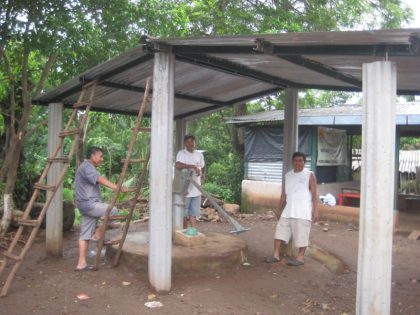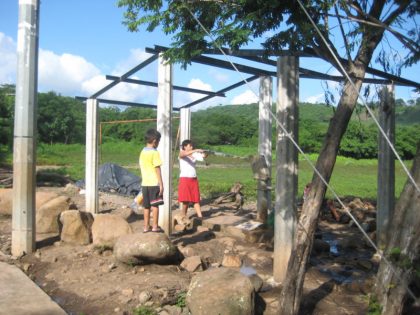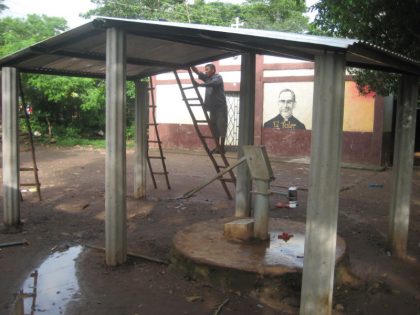 This project has been concluded under the technical direction of Peace Corps Volunteer Benjamin Byers. To read about the beginning of this project, CLICK HERE.
This project has been concluded under the technical direction of Peace Corps Volunteer Benjamin Byers. To read about the beginning of this project, CLICK HERE.
The project was to create the capacity for pump repair through the purchase of tools and materials and the instruction of community members to accomplish future repairs. This task was deemed necessary because the community had no ability to deal with the upkeep of the wells, while, at the same time, it was a certainty that maintenance and repairs would be needed.
The project arose from the needs of the community, and was planned and readied for implementation by the Water Committee. The Water Committee continued to seek collateral and alternative means for dealing with the problem. It evolved that they were able to negotiate a more secure method of dealing with the pump repair situation.
The NGO that initially built the wells formed a special well-repair team that was specifically created to react immediately to the need for future well repair. Since the needs of the initial project had been met without the expenditure of funds, the Water Committee determined to embark on additional necessary improvements of the wells.
It was decided that they had the capability to improve two of the wells. They proceeded to provide a system of protection for the wells and the people using them, and to implement a mechanism for purification of the water from the wells.
Permanent coverings were erected to serve to protect the wells from damage from the weather, and to extend their life. The covers protect the metal wells from rust, thereby minimizing upkeep and maintenance and extending their lives.
The coverings provide needed protection from the sun and rain for residents, especially the women, who haul water. There are frequent lines at the wells causing residents to wait up to 15 minutes to haul water. This protection will encourage the use of the wells, particularly during the rainy season, and divert people from using water from less safe sources.
It was determined that a chorine-based water purification system was needed to reduce the quantity of bacteria in the water. PuriAgua will now be dispensed at the well. The benefits of purifying the water and the containers were taught to the residents, and the system is in operation, maintained under the control of the Water Committee.
The community and Peace Corps Volunteer Benjamin Byers are grateful that we had the flexibility to work with them through their changing situation. We, in turn, are happy that we were able to see that the community was able gain the ability to deal immediately with the need for repairs, and also to achieve needed protection for the two wells and for the 300 villagers who use them.
We again extend our gratitude to The Soneva SLOW LIFE Trust for providing the funding for this project.

